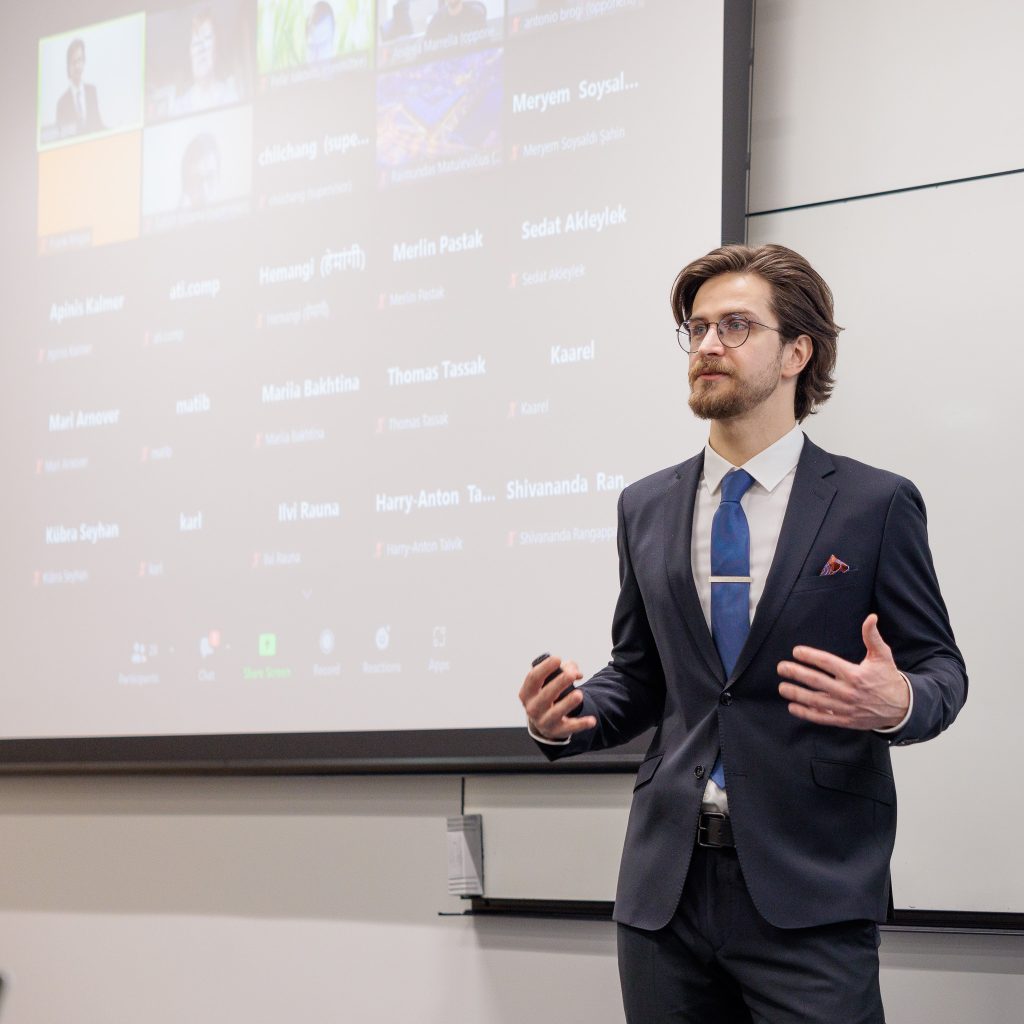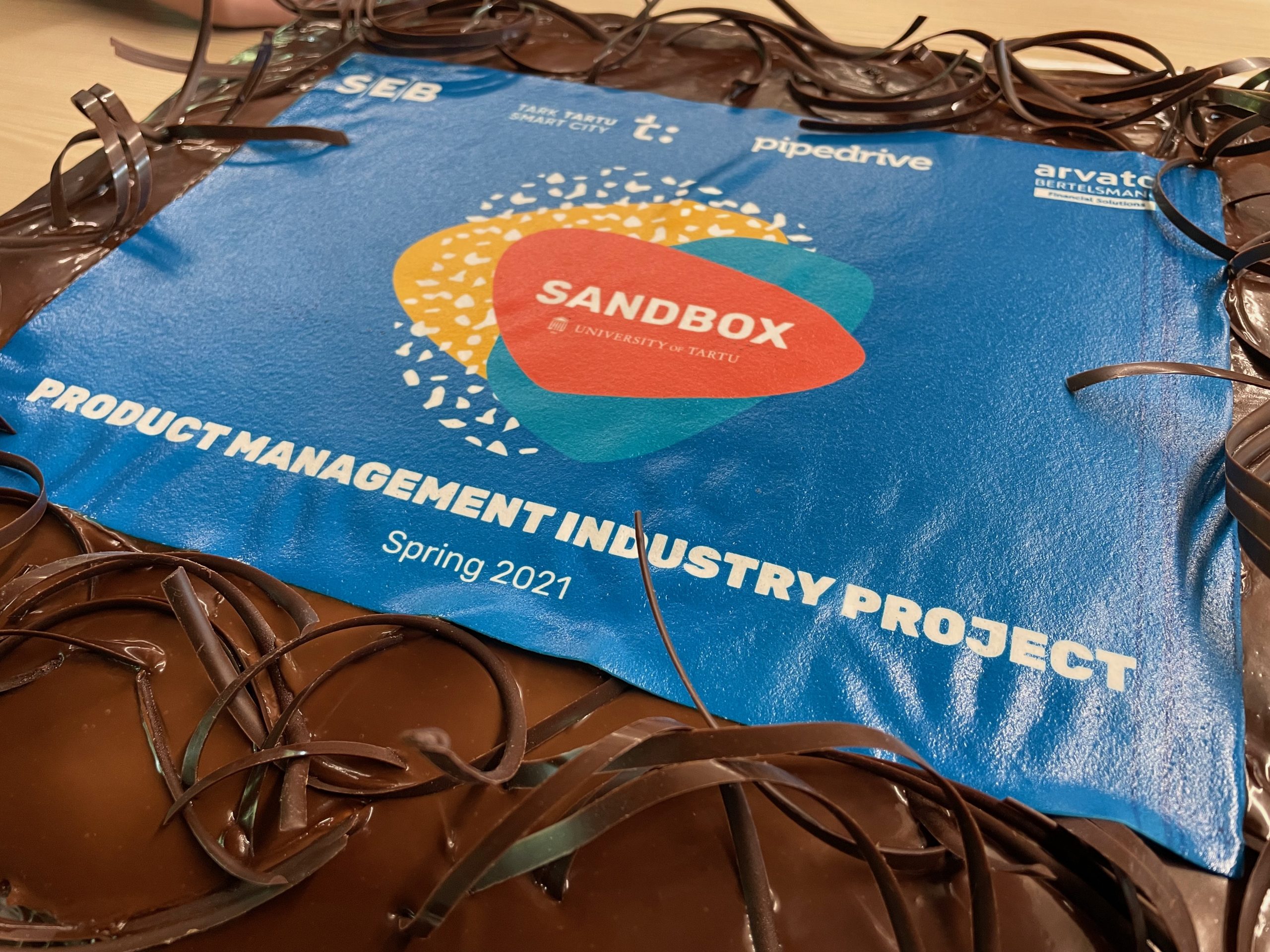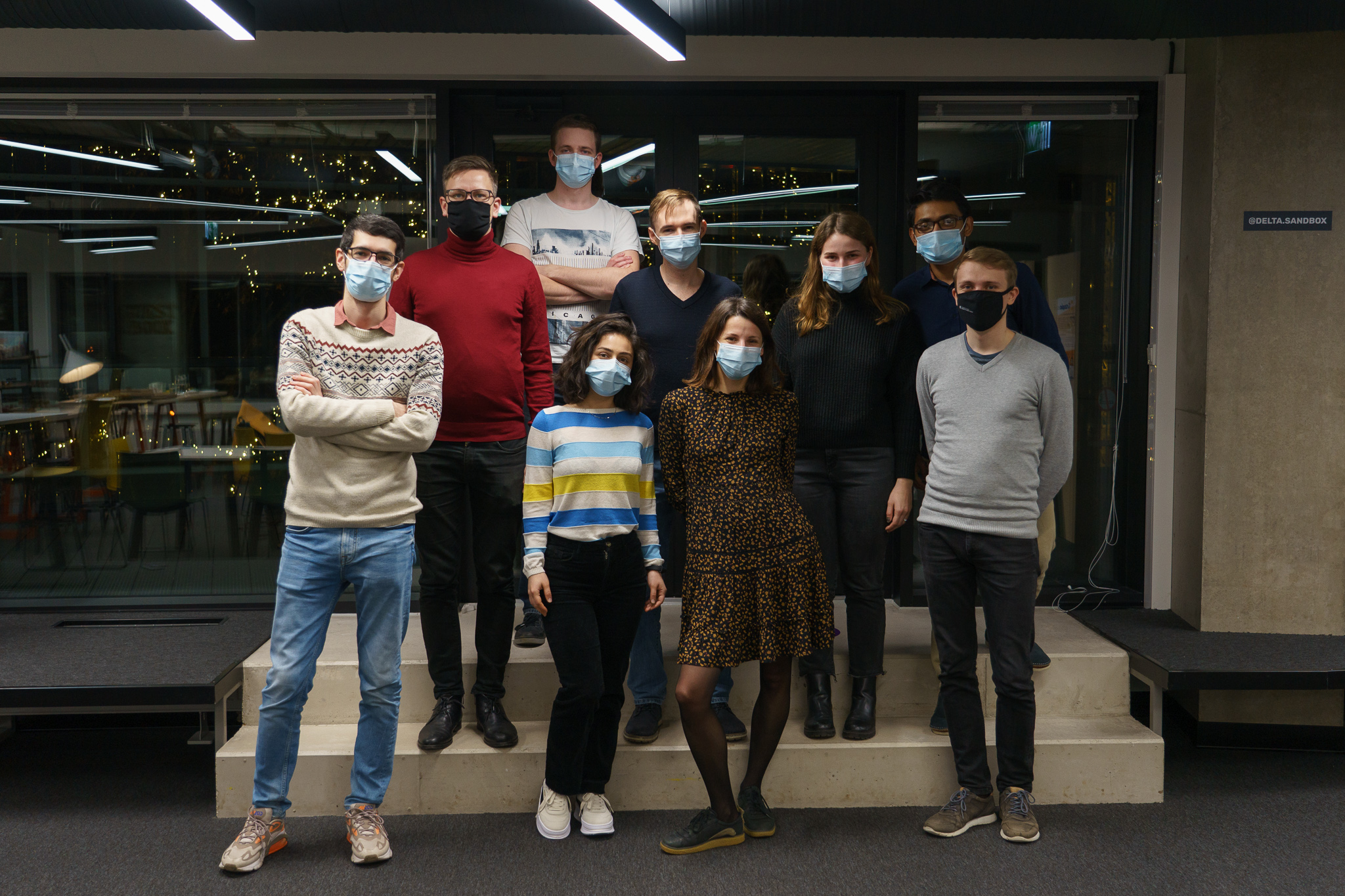On the 9th of December Jakob Mass defended his PhD thesis on „Process management for Internet of mobile things“.
The Internet of Things (IoT) promotes solutions such as a smart city, where everyday objects connect with info systems and each other. One example is a road condition monitoring system, where connected vehicles, such as buses, capture video, which is then processed to detect potholes and snow build-up. Building such a solution typically involves establishing a complex centralised system. The centralised approach may become a bottleneck as the number of IoT devices keeps growing. It relies on constant connectivity to all involved devices to make decisions, such as which vehicles to involve in the process.

Designing, automating, managing, and monitoring such processes can greatly be supported using the standards and software systems provided by the field of Business Process Management (BPM). However, BPM techniques are not directly applicable to new computing paradigms, such as Fog Computing and Edge Computing, on which the future of IoT relies. Here, a lot of decision-making and processing is moved from central data-centers to devices in the network edge, near the end-users and IoT sensors.
For example, video could be processed in mini-datacenters deployed throughout the city, e.g., at bus stops. This load distribution reduces the risk of the ever-growing number of IoT devices overloading the data center.
This thesis studies how to reorganise the process execution in this decentralised fashion, where processes must dynamically adapt to the volatile edge environment filled with moving devices. Namely, connectivity is intermittent, so decision-making and planning need to involve factors such as the movement trajectories of mobile devices.
We examined this issue in simulations and with a prototype for Android smartphones. We also showcase the STEP-ONE toolset, allowing researchers to conveniently simulate and analyse these issues in different realistic scenarios, such as those in a smart city.


